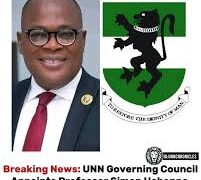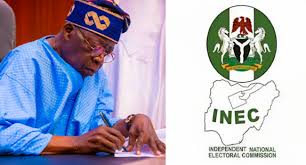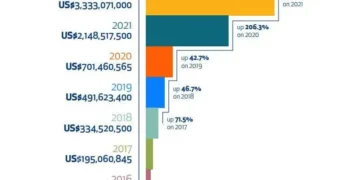The Independent National Electoral Commission (INEC) has intensified its efforts to push for electoral law reforms in Nigeria, putting pressure on the National Assembly to expedite action on the bill. INEC Chairman, Professor Mahmood Yakubu, emphasized the urgency of passing the Electoral Law Reforms Bill, warning that uncertainty over the legal framework could disrupt preparations for the 2027 general election.
The INEC boss made this appeal while receiving the European Union Election Observation Follow-up Mission led by Mr. Barry Andrews, a Member of the European Parliament. According to Yakubu, many of the EU's recommendations require legislative amendments, making early action by the National Assembly crucial. "An early passage of law is critical to our planning for the elections. Uncertainty over the legal framework for the election can unsettle the work of the Commission as election draws nearer," Yakubu stated.
The INEC chairman disclosed that the commission has already taken administrative steps to implement its share of the recommendations and is working with relevant stakeholders on cross-cutting issues while awaiting legislative action. He also revealed that INEC's post-election review of the 2023 polls produced 142 recommendations for electoral reform, complementing observer reports.
Some of the key recommendations for electoral reform include:
- Special Voting and Inclusion: Amendments to Sections 72(2), 117(1), 132(5), and 198 of the 1999 Constitution to allow early, special, and diaspora voting.
- INEC's Appointment Powers: Proposal to empower INEC to appoint Heads of its State and FCT Offices, strengthening its autonomy and efficiency.
- Creation of New Agencies: Recommendation for establishing an Electoral Offences Commission and a Political Party Regulatory Agency to tackle persistent challenges related to electoral crimes and political party management.
- Affirmative Action for Inclusion: Fixing ambiguities, referencing errors, and conflicting provisions, regarding among others, the transmission and collation of results under Sections 60, 64, and 65.
- Review of Election Results: Amending Section 65(1) to clearly define INEC's power to review election results.
- Compulsory electronic transmission of results directly from the polling booth to the iRev portal, and to recognize same as admissible and valid.
- And others.
Implications of Delayed Electoral Law Reforms
The delay in passing the Electoral Law Reforms Bill has raised concerns about the credibility of the 2027 general election. An anonymous respondent in Abuja shared his opinion on the development, saying, "What this means is that Tinubu and his APC are in trouble because any attempt by INEC to do what is right with that coming 2027 election will mean their failure and electoral lose. This is because it is only a government that works for the people that can win in a free, fair, transparent, accountable, and credible election."
INEC's Commitment to Electoral Integrity
Despite the challenges, INEC remains committed to ensuring the integrity of the electoral process. The commission has reassured the EU of Nigeria's continued commitment to international election observation, announcing that invitations will soon be extended to the EU, Commonwealth, African Union, and ECOWAS for the 2027 polls. "We believe that the recommendations arising from your observation of our election and electoral process help to improve the quality of our elections and electoral activities," Yakubu said.
Conclusion
The pressure on the National Assembly to expedite action on the Electoral Law Reforms Bill is mounting, with INEC emphasizing the need for timely reforms to ensure credible elections in 2027. As the country approaches the 2027 general election, stakeholders are watching closely to see whether the National Assembly will act in the best interest of Nigeria's democracy. The success of the electoral reform process will depend on the willingness of lawmakers to prioritize the country's electoral integrity over partisan interests.




























